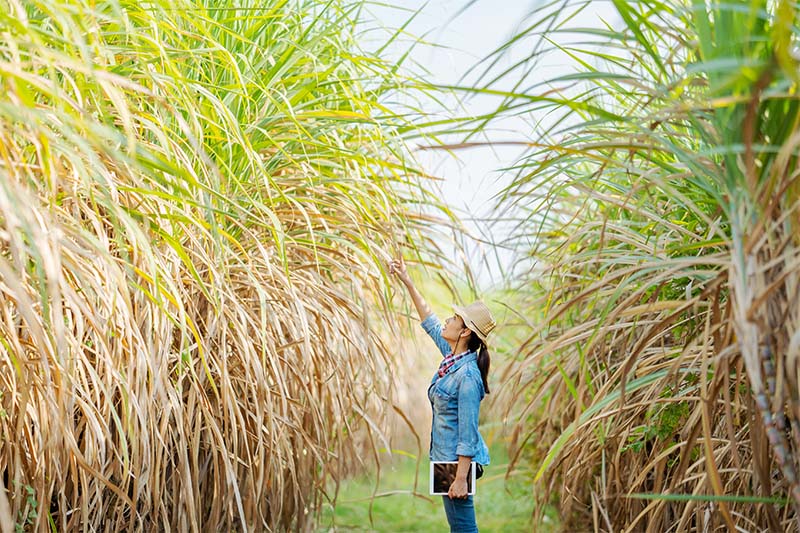Renu: Why are we using Sugar Cane instead of plastics?

Using sugar cane as an alternative to plastic offers several benefits, including:
Renewable and Sustainable: Sugar cane is a renewable resource that can be harvested multiple times before replanting. Additionally, sugar cane-based products can potentially reduce dependency on fossil fuels, which are used in the production of plastic.
Biodegradable and Compostable: Many sugar cane-based products are biodegradable and compostable, meaning they can naturally break down and decompose into organic matter without leaving harmful residues or contributing to plastic pollution. This can help reduce the accumulation of plastic waste in landfills, oceans, and other ecosystems.
Reduced Carbon Footprint: Sugar cane-based products generally have a lower carbon footprint compared to plastic. The cultivation and processing of sugar cane can potentially result in lower greenhouse gas emissions, as sugar cane plants absorb carbon dioxide from the atmosphere during their growth cycle. Additionally, the production of sugar cane-based products may require less energy compared to plastic production, which involves the extraction and refinement of fossil fuels.
Versatility and Customisation: Sugar cane can be processed into different forms, such as bagasse (the fibrous residue left after sugar cane juice extraction), pulp, or bioplastics, which can be used in a wide range of applications. Sugar cane-based products can be molded and shaped into various forms, making them suitable for packaging, disposable tableware, and other household items. The physical properties of sugar cane-based products can also be customised to meet specific requirements, such as strength, durability, and flexibility.
Social Impact: The use of sugar cane-based products can potentially have a positive social impact, particularly in sugar cane-producing regions. It can contribute to the economic development of these regions by providing employment opportunities and income for farmers and labourers. Additionally, the adoption of sustainable and socially responsible sourcing practices for sugar cane can support local livelihoods, promote fair trade, and improve the livelihoods of small-scale farmers.
Health and Safety: Sugar cane-based products are generally considered safe for use, as they do not contain harmful chemicals or toxins that can leach into food or the environment. This can be beneficial for consumers who are concerned about the potential health risks associated with plastic and other synthetic materials.
In conclusion, using sugar cane as an alternative to plastic offers several benefits, including its renewable and sustainable nature which is why Dunlop Flooring invested in the development of Renu, our most sustainable bio-based carpet underlay.
For more information about Renu, click here.
Other Advice
Recommended Products
No matter what level of comfort and performance you need, Dunlop Springtred has it covered. There are 2 premium products available in the range, each offering a different level of comfort and support to suit your budget ...
Dunlop Carpetmate offers an extensive range of foam carpet underlays to help make your carpet even more comfortable. With eight different combinations of density and thickness available, you can choose the right ...